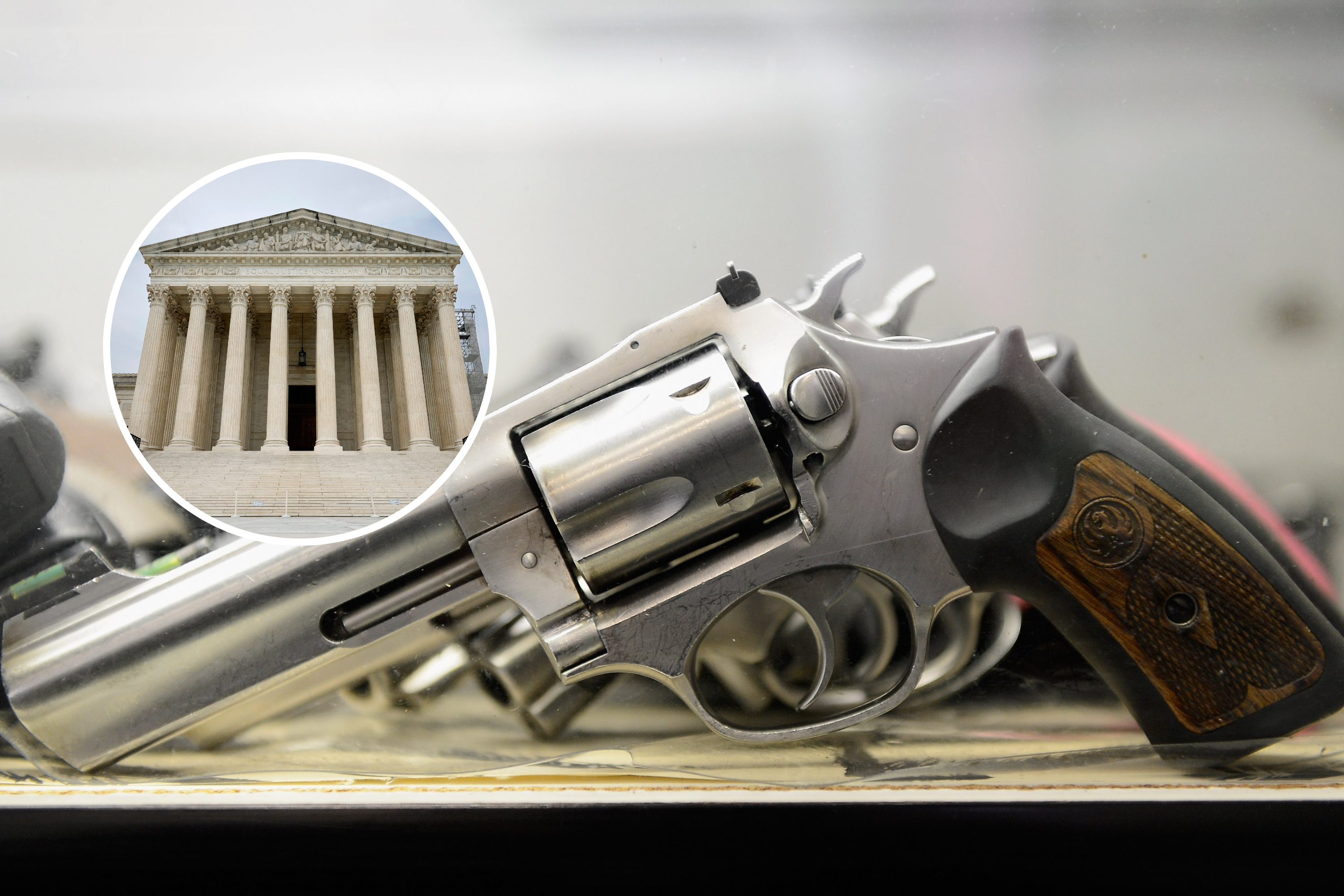Bussiness
Supreme Court Agrees to Hear ‘Business-Crushing’ Gun Case

The United States Supreme Court will hear case about whether Mexico can sue Smith & Wesson Brands Inc. for facilitating sales to people connected with Mexico’s drug cartels.
On Friday, the justices agreed to hear Smith & Wesson’s case seeking to dismiss the lawsuit filed by the Mexican government. Mexico sued the gun maker and is asking for billions of dollars in damages and new gun-control measures. It’s the first suit by a national government against the gun industry, and one that Smith & Wesson warn could completely decimate their industry.
In a letter addressed to the Supreme Court clerk on August 8, a lawyer for Smith & Wesson Brands said the company is protected from a 2005 law that provides liability shields to gunmakers.
Kevork Djansezian/Kevin Dietsch/Getty Images
“Leading members of the American firearms industry are facing years of litigation costs and the specter of business-crushing liability,” attorney Noel Francisco wrote.
Francisco’s letter also suggested that the company would be accountable for “the tune of billions of dollars, plus far-reaching injunctive relief.”
Newsweek reached out to Smith & Wesson for comment.
In the lawsuit, Mexico alleged the manufactures and distributors were helping the purchase of their firearms by dealers who were known to supply the drug cartels. It also is claimed that the companies did not make changes, such as installing safeguards or making gun serial numbers harder to tamper with, that could make the guns less likely for criminal use.
The complaint called the marketing of the products “inflammatory” and “reckless.”
The Boston-based 1st US Circuit Court of Appeals previously said the 2005 Protection of Lawful Commerce in Arms Act does not protect the companies. The court explained that the gunmakers intentionally traded with suppliers for the cartels.
Smith & Wesson previously told the Supreme Court that the 1st Circuit decision “exposes a wide swath of industry to liability for doing nothing more than making available legal and nondefective products that can be criminally misused downstream.”
Originally, the lawsuit was against a total of eight companies. The trial judge said six gunmakers lacked a connection to Massachusetts for the case. In addition to Smith & Wesson, Interstate Arms is now also named.
Lawyers for Mexico asked the Supreme Court not to hear the case.
The court’s nine-month new term starts on Monday. A decision on this case should come by July.
In addition to the gunmaker case, the Supreme Court granted 12 other cases for disputes dealing with reverse discrimination, DNA testing for a death row inmate, vaping, and the storage of spent nuclear fuel.
This is a developing story and will be updated as more information becomes available.










